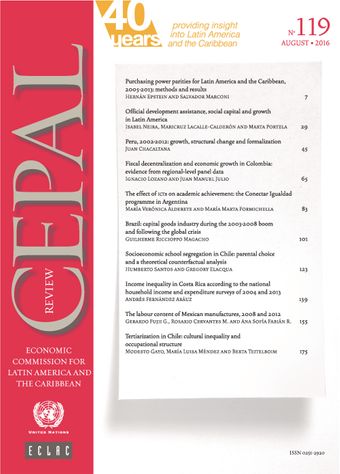-
Socioeconomic school segregation in Chile: Parental choice and a theoretical counterfactual analysis
- Source: CEPAL Review, Volume 2016, Issue 119, Aug 2016, p. 123 - 137
- Spanish
-
- 04 May 2017
Abstract
In this article, we examine the hypothesis that the policy of parental school choice in Chile has increased socioeconomic school segregation. We use a georeferenced database of students and schools in the Greater Metropolitan Area of Santiago to compare actual segregation with the segregation that would occur in the hypothetical case that students attended the school nearest to their place of residence. The results indicate that school segregation is higher in the actual scenario than in the counterfactual scenario, which suggests that the interaction between family preferences and school entry barriers (tuition and selective admission process) tend to increase school segregation beyond the city’s underlying residential segregation.
© United Nations





